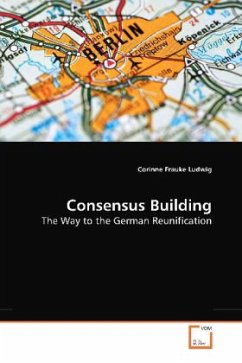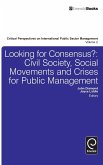The fall of the Berlin Wall in November 1989 unexpectedly put the possibility of a German reunification back on the political agenda. The scenario of a reunited German state in the center of Europe, however, threatened the balance of power that had averted an escalation into armed conflict throughout the Cold War era and raised fears and apprehensions due to the experiences and consequences of 74 years of German unity. Despite this historical context and the broad rejection of West German ambitions, Germany was reunited by October 1990, less than one year after the fall of the Berlin wall and nearly 10 years ago to this day. The remarkably swift and peaceful process of negotiating and establishing this reunification calls for a thorough analysis with a focus on the strategic moves of West German Chancellor Helmut Kohl and how he managed to reach the necessary general consensus.
Bitte wählen Sie Ihr Anliegen aus.
Rechnungen
Retourenschein anfordern
Bestellstatus
Storno








